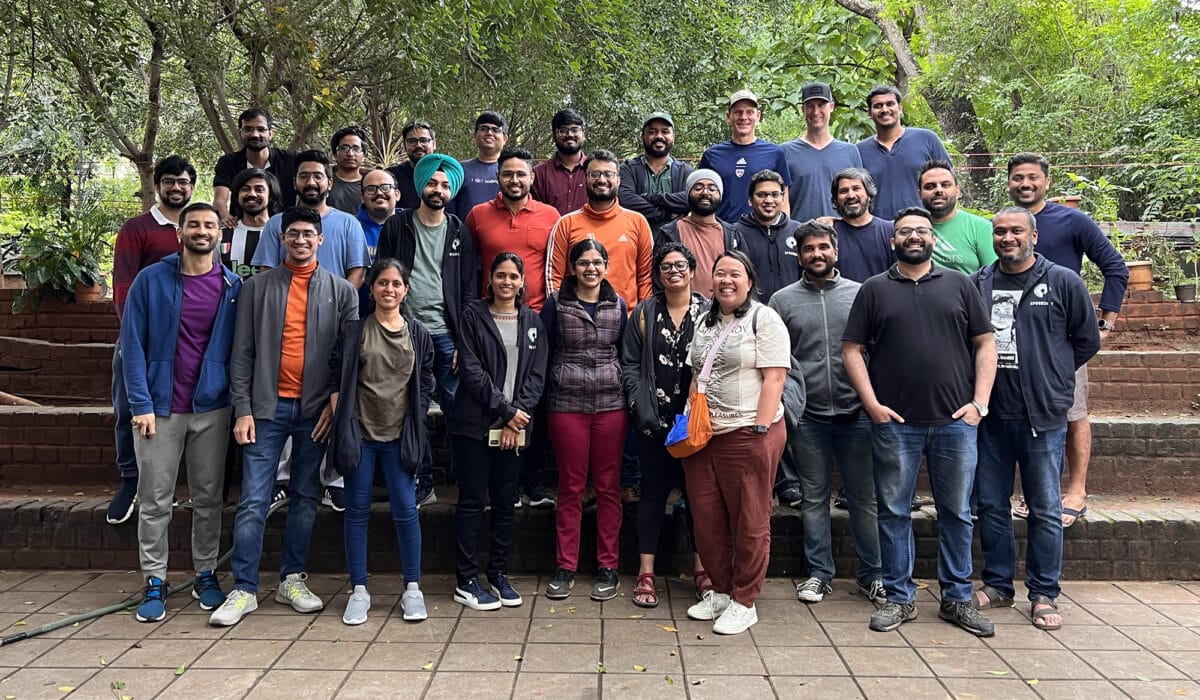In business, the riches are often in the niches.
Timothy Armoo, Ambrose Cooke and Mitchell Fasanya know that well after selling Fanbytes, a Gen Z-focused influencer marketing company.
“We focused on being Gen Z specialists, which meant that we dominated a niche and became the main player for any brand wanting to reach this audience through influencers,” Armoo said. “We attracted large brands to come to us through our thought leadership and positioning.”
Armoo and Cooke co-founded Fanbytes in 2017 (Fasanya joined later as CTO and co-founder) after recognizing popular influencers’ ability to create relationships with fans, and how that can be leveraged for influencer marketing. Influencer marketing is a type of social media marketing in which a person or group — typically those with experience or knowledge in a particular field — endorses or reviews products or services. They use their fame and following to drive sales.
UK-based Fanbytes’ software and services enabled brands to start and manage their own influencer campaigns.
Its talent management platform helps advertisers find relevant influencers, with its data portal providing information on more than 6 million influencers on TikTok and Instagram. The portal — called Bytesights — enables brands to monitor social media growth, predict trends, and locate conversations around their products, competitors and industries.
How differentiation and inbound sales fueled Fanbytes
By focusing on the Gen Z market — those born between roughly 1997 and 2012 — Fanbytes differentiated itself to attract large brands like Nike, Samsung, McDonalds and the government of the United Kingdom. Most of that business found them, Armoo said, without much marketing.
“For five years, we never built an outbound team,” said Armoo, who co-founded the company at 21 while attending university. “All our revenue was inbound driven — even with organizations like the government.”
Fanbytes’ 2017 launch had apt timing as the burgeoning influencer marketing industry was becoming an increasingly valuable ad channel for brands. Spending on influencer advertising in the U.S. alone is expected to hit $4.1 billion in 2022, up from roughly $2.4 billion in 2019, according to market research company Insider Intelligence.
Fanbytes raised $2 million from angel investors to fuel its growth. That funding allowed the company to rapidly add employees, growing its headcount from the three co-founders to 70 people within five years.
During that time, Fanbytes’ revenue grew 130% year-over-year, and it signed more than 500 brands in 25 countries. At the time of its sale in 2022, the company’s annual revenue was 8 figures, Armoo said.
As Fanbytes added employees, Armoo and his team had to develop more structure, which presented challenges for the young entrepreneurs.
“It was a fast ride. The biggest transition was at some point in the business, there needed to be a transition from being a startup to a process-driven organization,” Armoo said. “We eventually did this, but we could have done this earlier in our journey. I was 21 when I started the business, so a lot of mistakes were due to just naivete and youth.”
How Fanbytes sold to Brainlabs
After that rapid growth, the trio of founders realized Fanbytes needed the infrastructure of a bigger company to continue to scale. The market also was beginning to consolidate through mergers and acquisitions, so it felt like opportunistic timing, and they knew they needed a liquidity event after raising money, Armoo said.
They fielded offers from private equity companies, but couldn’t find the right fit. They wanted a buyer that would provide the team with opportunity for growth.
Fanbytes used an investment bank for the transaction rather than a broker, which is typical for 8-figure deals.
Ultimately, they found the right fit with Brainlabs, a London-based digital marketing agency. The company, which has more than 800 employees around the globe, offered “tens of millions” of dollars for the company, Armoo said, and the transaction closed in May 2022.
“We ended up having four companies want to acquire us and submit letters of intent,” he said. “That meant that we could actually decide who we thought was the best fit and we thought Brainlabs were the best fit.”
For Brainlabs, Fanbytes represented a well-established partner in the influencer space, and the “essential piece of the jigsaw” in its digital marketing offerings, Brainlabs Global CEO Daniel Gilbert said in an announcement about the deal.
“Influencer marketing has rapidly become an integral part of the digital media mix so to be able to offer it alongside our other capabilities under one roof is a huge advantage to our clients.”
Armoo, who was 27 when Fanbytes sold, described the sale as “pretty seamless and exciting… I enjoy sales and marketing, so this to me was an opportunity to hone my skills and perform on a bigger stage.”
The sale generated buzz around the marketing world, drawing headlines from the likes of AdWeek, Forbes, People of Color in Tech and UK-based The Times.
Post sale, Armoo remains the CEO of Fanbytes, Cooke is its COO and Fasanya is its CTO.

